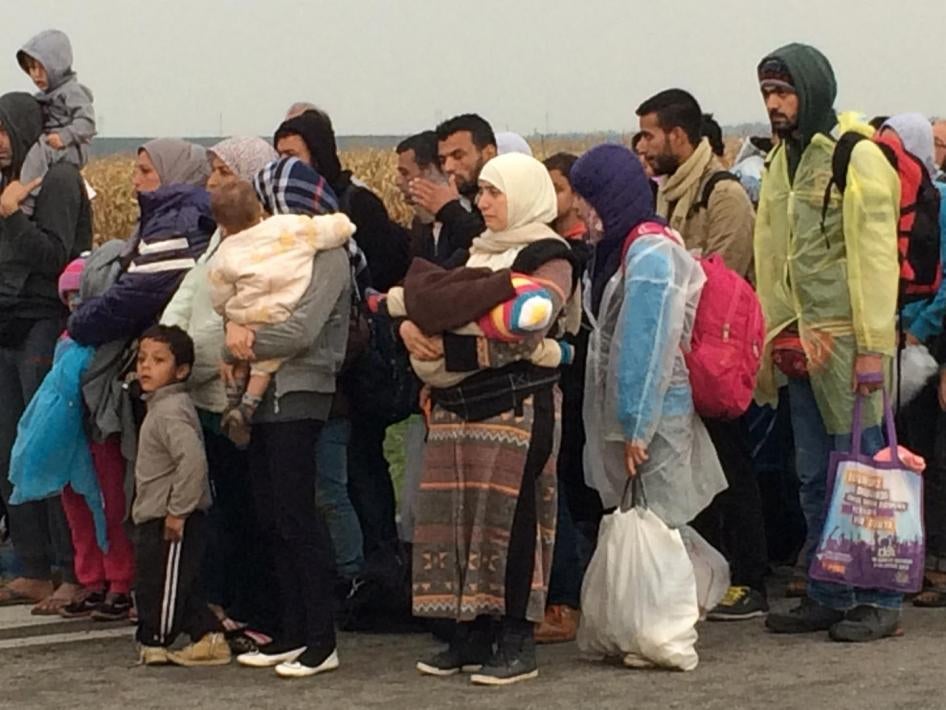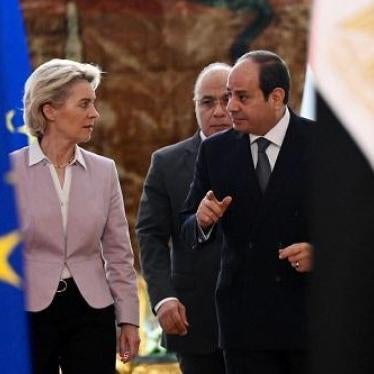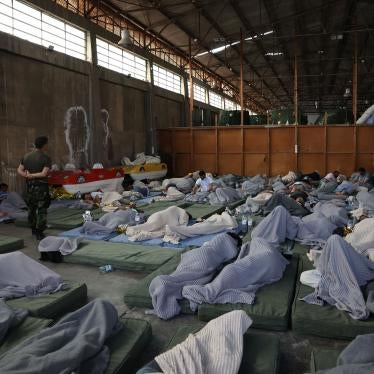“Either we would die. Or we would live.”
This is the choice Samira and Omar, a couple from Kobane, Syria, felt they had. So they took their children -- ages 9, 8, 3 and 10 months -- and, with an 18-year-old cousin, embarked on the dangerous journey across the Mediterranean to Europe. “The road of death,” as refugees we met last week described it. Samira and Omar said they were first deceived by a smuggler, who took $3,000 from them and disappeared. They then paid $6,300 for the trip to a Greek island that has claimed so many lives.
We met them one night as they stood at the back of a long line of people waiting to get into the grim Opatovac transit camp, in Croatia. Looking at this family, as Europeans we felt ashamed that people who have escaped from danger had to risk their lives all over again, and those of their children, to seek protection. Surely Europe is better than this.
It is bad enough that people seeking protection have to risk to lives to reach Europe. But the treatment they have had to endure at its borders adds insult to injury.
At each border we visited in the past weeks -- Hungary, Serbia, Croatia and Macedonia -- we saw exhausted people kept in limbo by the authorities in often chaotic and inhumane circumstances. Lack of coordination between authorities in neighboring states and a reluctance to take responsibility for asylum seekers, with resulting border closures, have made what should be a manageable flow overwhelming at times, with thousands of arrivals across a single border crossing point in a matter of hours.
The human consequences were plain to see. We saw many families with small children and babies being forced to spend nights under open skies with little to no protection from the elements. We saw thousands unable to get food or water both in sweltering heat and in freezing cold and rain; family members losing contact with each other; and families forced to sleep in a graveyard in a storm, not knowing what the next day would bring.
We have witnessed another, better, side of Europe too, with the immense efforts by volunteers, concerned citizens, who have shown hospitality and humanity in some places we visited. In Budapest, volunteers ran the entire show at the now infamous Keleti train station, setting up a makeshift camp for thousands of refugees for weeks because the authorities didn’t provide any assistance.
In Vienna, and across the Western Balkan route, we met fantastic and committed people who took time off from work and family responsibilities to help the refugees, by collecting money to buy and distribute food, clothes, blankets and tents. At one border crossing between Croatia and Serbia, it was a Swedish volunteer who drove an 80 year old Syrian woman to the nearest bus that would take her and other refugees further along the journey. She could not walk, and we were stunned she had made it that far.
But this crisis is not for volunteers to resolve. It requires an effective common response by EU and other European governments. The relocation plan agreed by the EU Council on September 22 is only a first step. An effective common EU response also requires looking at ways to develop safe and legal routes; making a commitment to fix the EU’s broken asylum (for which the new Europe Commission enforcement action is an important first step); and ensuring robust search-and-rescue efforts at sea.
Ahead of the EU summit with Western Balkan countries and Syria’s neighbors on October 8, it’s vital for EU governments not to attempt to solve this crisis by trying to shift their responsibilities onto their Western Balkan neighbors, Serbia and Macedonia, or Turkey. Serbia and Macedonia don’t currently have the capacity to fairly process or humanely host large numbers of asylum seekers, and Turkey already is hosting two million Syrian refugees.
Capacity building in the Western Balkans and increased aid to the refugee effort in Turkey, Jordan and Lebanon are both important. But they are a complement -- not a substitute -- for EU governments living up to their responsibilities.
Instead of sitting in Brussels or Luxembourg, maybe EU leaders should spend a few hours with refugees stuck on a border in the Western Balkans.
“I thought I came to freedom, to human rights, here in Europe, but people treat us like animals and criminals,” said an Iraqi man we interviewed in Hungary. “Is this why I risked my life? What have I done [to deserve this?]”
How would European leaders answer him?










